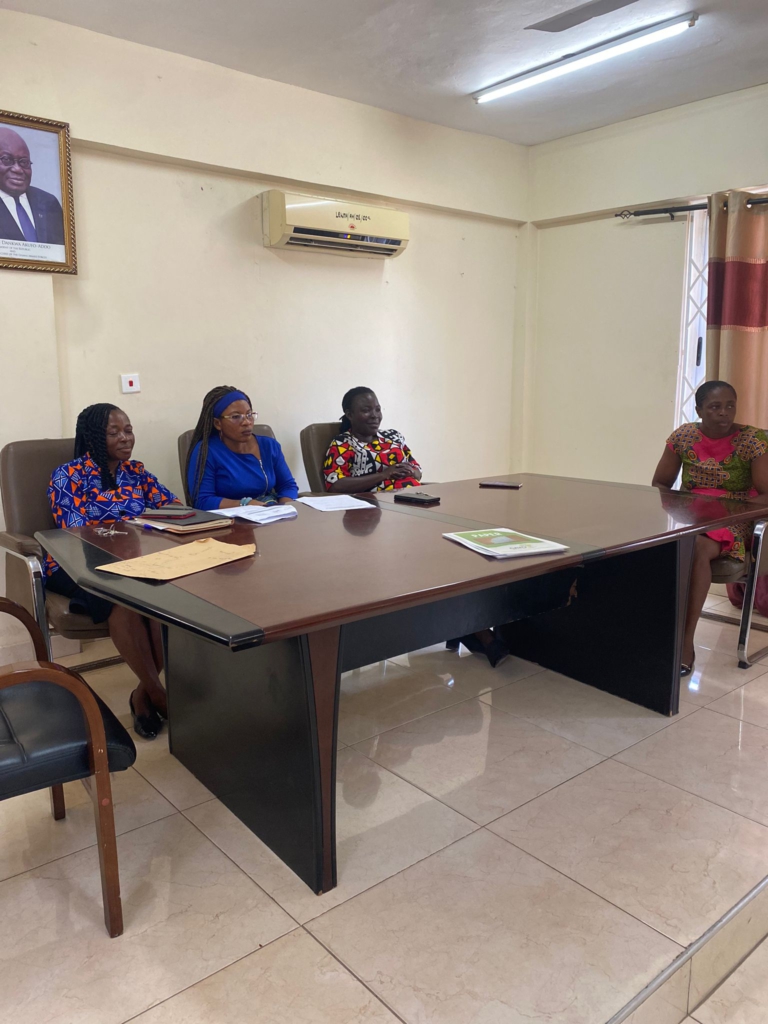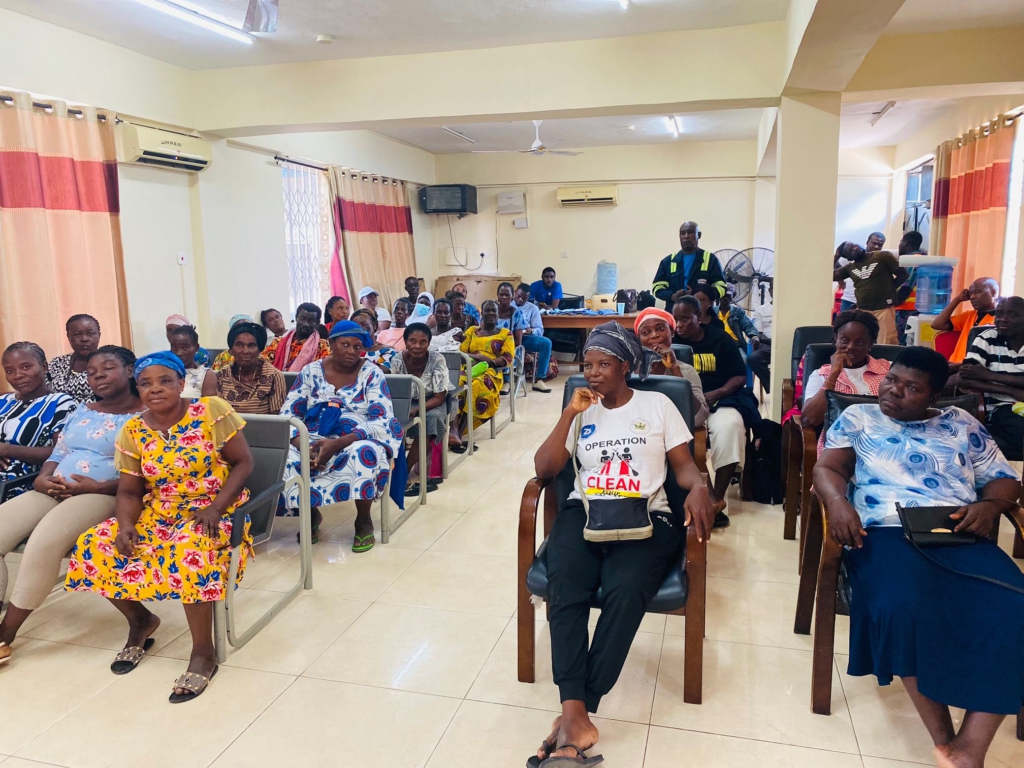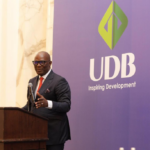On Friday, 15th of October, 2022, the Green Africa Youth Organization under the Enterprise Driven Solutions to Plastic Management Project partnered with the Bola Taxi and Tricycle Association (BTTA) and the SESA recycling to organize a consultative meeting for informal waste workers in the Ledzokuku municipality.
This consultative meeting aimed at educating the waste workers on the significance of the work they do in the community and the pivotal role they play in driving a zero-waste city. Also, this served as a platform to dialogue with the assembly on the challenges and barriers they face on the field and how the assembly can assist in scaling them.

The meeting was attended mainly by the waste workers in LeKMA who are the focus group for the meeting. Also in attendance were Lydia Bamfo, National President of the Borla Taxi and Tricycle Association, Doris Lawoe the Municipal Environmental Health Officer (MEHO) of LeKMA, representatives from SESA recycling and some volunteers from the La Dade-Kotopon Municipal Assembly who are working on the Zero Waste Accra project.
Speaking on the critical role of informal waste workers, Lydia Bamfo noted that it was important to keep waste workers in the circular economy loop because diverting waste from landfill reduces methane, a harmful gas contributing to climate change.
She also reiterated that any calls for Waste to Energy plants to be implemented in Ghana will be met with vehement pushback from all organizations within the circular economy ecosystem because it will take jobs away from waste workers and pickers, contribute to more emissions and the evidence from other countries where it has been piloted suggest that it is a false solution to waste management.

Christopher Gyan from SESA recycling spoke to attendees about the worth of waste and how income can be generated from waste collection. He also reiterated the commitments made by the municipal assembly to keep the municipality clean and situated the informal waste worker as a critical agent in achieving that goal.
In engaging with stakeholders, the waste workers noted how their rights have been continually disregarded even in pursuit of a livelihood. In response to that, Ms. Mabel Laryea, assistant project coordinator for GAYO, championed the need for the waste workers to form a cooperative and have one voice in dealing with relevant authorities. This, she says will give them a bargaining chip and a seat at the table in the decision-making process.
On the sidelines of the event, Ms. Laryea noted that the next step for GAYO is to organize community sensitizations with the waste workers to educate the community to segregate their waste and take action toward a zero-waste city.





